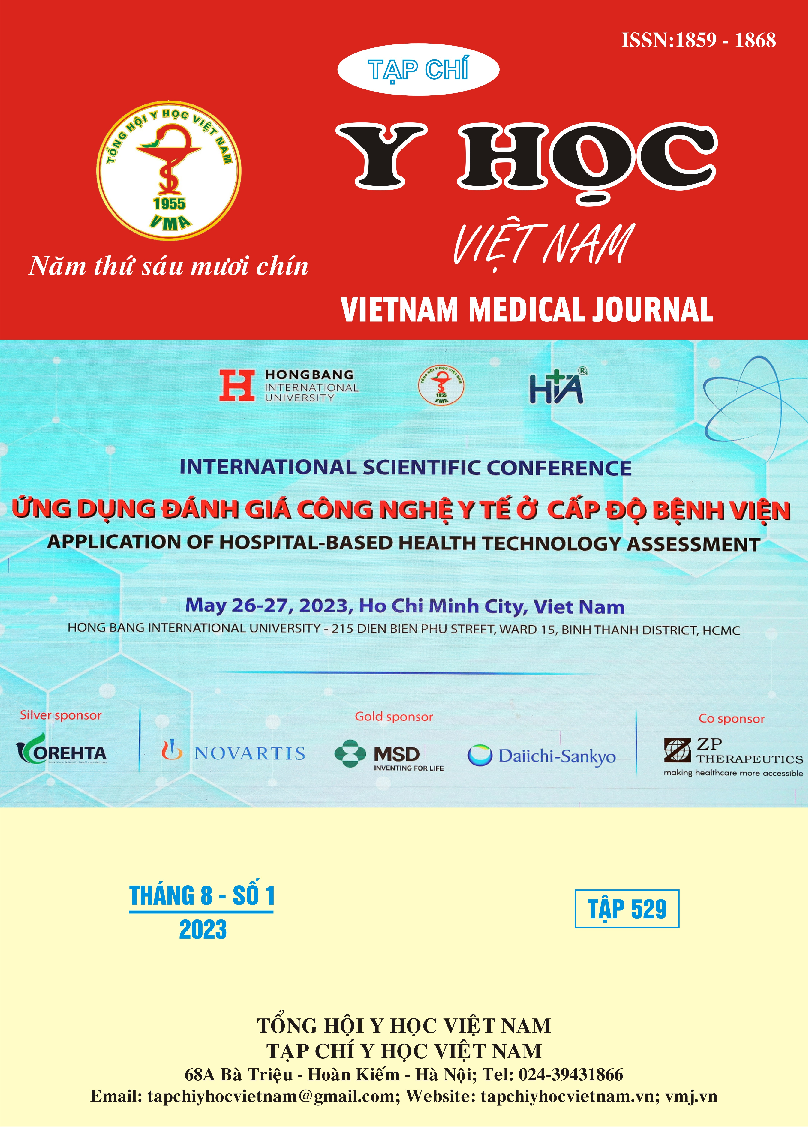THE INVESTIGATION OF ANTIBACTERIAL ACTIVITY OF MOSS ROSE AQUEOUS EXTRACT IN VITRO
Main Article Content
Abstract
Objective: Investigate antibacterial activity of aqueous extract from moss rose on Staphylococcus aureus and Bacillus cereus. Materials and methods: Dried leaves and stem of moss rose were extracted by boiled water. Phytochemical components were determined by chemical reactions. The antibacterial activity of extract was evaluated using disk diffusion and broth culture methods. Results: Moss rose extract contains phenols, alkaloids, glycosids, flavonoids, and saponins. The extract possed strong antibacterial activity on S. aureus and B. cereus at 25 mg/mL và 100 mg/mL, respectively. Minimum inhibition concentrations were 1,6 mg/mL to S. aureus and 3,2 mg/mL to B. cereus. Conclusion: Aqueous extract from moss rose posses antibacterial activity on 2 experimetal bacterial species, S. aureus is more sensitivity to the extract than B. cereus.
Article Details
Keywords
moss rose, extract, bacteria, S. aureus, B. cereus
References
2. Spórna-Kucab, A., et al., Metabolite Profiling Analysis and the Correlation with Biological Activity of Betalain-Rich Portulaca grandiflora Hook. Extracts. Antioxidants, 2022. 11(9).
3. Murray, C.J.L., et al., Global burden of bacterial antimicrobial resistance in 2019: a systematic analysis. The Lancet, 2022. 399(10325): p. 629-655.
4. Taylor, T.A. and C.G. Unakal, Staphylococcus Aureus, in StatPearls. 2023, StatPearls Publishing.
5. McDowell, R.H., E.M. Sands, and H. Friedman, Bacillus Cereus, in StatPearls. 2023, StatPearls Publishing.
6. Vaghasiya, Y., R. Dave, and S.V.J.R.J.o.M.P. Chanda, Phytochemical Analysis of Some Medicinal Plants from Western Region of India. 2011. 5: p. 567-576.
7. Hochma, E., et al., Antimicrobial Effect of Phytochemicals from Edible Plants. 2021. 9(11): p. 2089.


